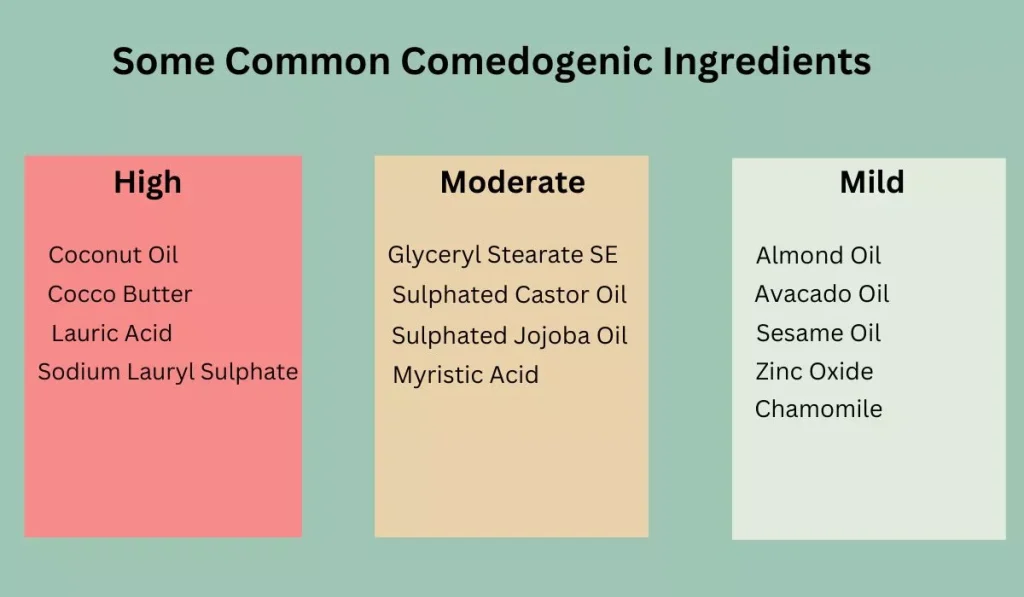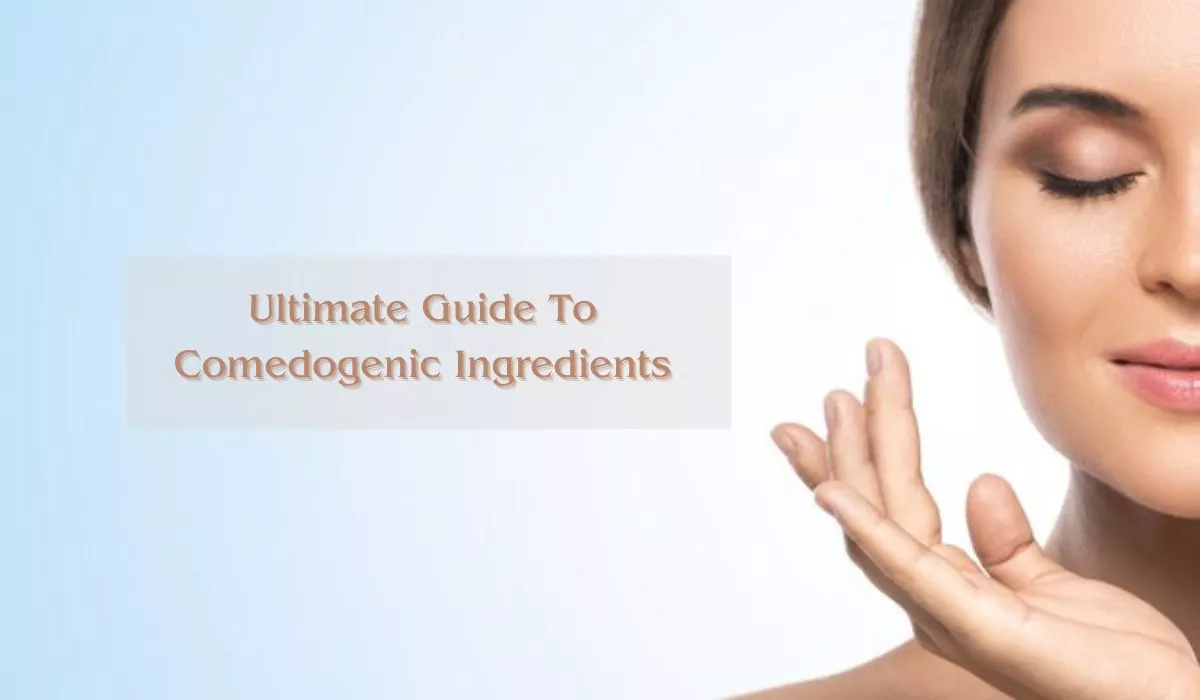Acne is one of the common problems faced by people in their teenage age because of hormones or because of some cream or medicines allergy. But have you ever noticed sometimes, when you change your face cream or apply some new home remedies, you instantly get breakouts? The reason behind this is comedogenic ingredients, which are either used in creams or used with home remedies.
Comedegenic ingredients are some substances or ingredients that we, directly and indirectly, use in our skin, and they clog the pores of the skin and ultimately cause acne, blackheads, whiteheads, etc. Do you know what some of the common comedogenic ingredients are, how they affect your skin, and how to deal with them? Let’s see!
Some Common Comedogenic Ingredients
Because of incomplete knowledge and myths, you must use some comedogenics as home remedies, and that leaves a negative impact on your skin. Coconut oil, cocoa butter, mineral oils, and alcohol are some of the common ingredients that we use as a home remedy.

Some of the chemicals that are available in your moisturizers, cosmetics products, sun creams, etc, are isopropyl myristate, isopropyl palmitate, acetylated lanolin alcohol, myristyl myristate, etc.
How Comedogenic Ingredients Work On Skin?
Most of the comedogenic ingredients are very thick and oily in consistency, which simply clogs the pores and stops the proper breathing mechanism on the skin, causing breakouts. Some of the comedogenic ingredients cause cells to stick together, which causes blackheads.
Ingredients like coconut oil and cocoa butter are sticky and heavy which results in clogging pores directly, while some, like acetylated lanolin alcohol and isopropyl myristate consistency, are similar to sebum, which is a natural oil produced by sebaceous glands attached to hair follicles. When these substances mix with sebum, they form a heavy, sticky plug that clogs the pores of the skin.
How Can I Avoid Comedogenic Ingredients?
You can avoid comedogenic ingredients by using products that are made of natural products; some of the natural non-comedogenic ingredients are aloe vera, hyaluronic acid, niacinamide, tea tree oil, zinc, etc. Before buying any moisturizer, sun cream, face cream, or any type of cosmetics, see the label of non-comedogenic ingredients or oil-free products; these types of products contain none or very few comedogenic products, which lessen the effects on your skin.
If you have acne-prone skin, then just do not depend on non-comedogenic products or oil-free product labels but see all product ingredients carefully or use products that are personalized and recommended by your dermatologist.
How To Deal With Comedogenic Breakouts?
If you are having breakouts due to using comedogenic products, then most importantly, firstly, stop using that specific product and start using non-comedogenic and gel-based products; avoid using heavy makeup sometimes because this also clogs pores, cleans and moisturizes your face properly; you can also try steam on your face to open up pores.
Avoid any products that irritate your skin, and take a good diet; you can also use vinegar to dry up your skin and remove the excess oil from the skin. If these steps do not manage your breakout, use breakout treatments, creams, and medications.
If you have acne-prone skin and you get a comedogenic breakout, then you must visit your dermatologist and get proper treatment for this. Managing breakouts in acne-prone skin or oily skin is a little difficult, so follow what your dermatologist prescribes, either medications or some other treatments like laser therapy or chemical peels.
How Do Non-Comedogenic Products Help The Skin?
Non-comedogenic products are lightweight, creamy, and non-sticky products that do not clog the pores of your skin; they also help the skin to keep hydrated and balanced, which ultimately decreases the risk of breakouts. This also helps in improving skin textures by reducing dead skin and clogging pores and reducing inflammations by balancing the skin.
In Summary
Comedogenic ingredients can clog the pores and cause acne breakouts and other skin-related issues. It is so important to know about comedogenic ingredients and types of comedogenic ingredients to avoid them. Always choose products that are labeled non-comedogenic products or oil-free products.
If you are having severe breakouts after following all the tips mentioned above, then you must visit a skin doctor or dermatologist and take proper medication or other treatment options.

